- Home
- Harry Harrison
Winter in Eden
Winter in Eden Read online
CONTENTS
PROLOGUE
WINTER IN EDEN
CHAPTER ONE
CHAPTER TWO
CHAPTER THREE
CHAPTER FOUR
CHAPTER FIVE
CHAPTER SIX
CHAPTER SEVEN
CHAPTER EIGHT
CHAPTER NINE
CHAPTER TEN
CHAPTER ELEVEN
CHAPTER TWELVE
CHAPTER THIRTEEN
CHAPTER FOURTEEN
CHAPTER FIFTEEN
CHAPTER SIXTEEN
CHAPTER SEVENTEEN
CHAPTER EIGHTEEN
CHAPTER NINETEEN
CHAPTER TWENTY
CHAPTER TWENTY-ONE
CHAPTER TWENTY-TWO
CHAPTER TWENTY-THREE
CHAPTER TWENTY-FOUR
CHAPTER TWENTY-FIVE
CHAPTER TWENTY-SIX
CHAPTER TWENTY-SEVEN
CHAPTER TWENTY-EIGHT
CHAPTER TWENTY-NINE
CHAPTER THIRTY
CHAPTER THIRTY-ONE
CHAPTER THIRTY-TWO
CHAPTER THIRTY-THREE
CHAPTER THIRTY-FOUR
CHAPTER THIRTY-FIVE
CHAPTER THIRTY-SIX
CHAPTER THIRTY-SEVEN
CHAPTER THIRTY-EIGHT
CHAPTER THIRTY-NINE
CHAPTER FORTY
CHAPTER FORTY-ONE
CHAPTER FORTY-TWO
CHAPTER FORTY-THREE
CHAPTER FORTY-FOUR
CHAPTER FORTY-FIVE
THE WORLD WEST OF EDEN
THE YILANÈ
History of the World
Physiology
Diet
Reproduction
Science
Culture
THE TANU
Language
THE PARMUTAN
Environment
Language
DICTIONARIES
Yilanè–English
Marbak–English
Sesek–English
Angurpiaq–English
ZOOLOGY
8 And the LORD God planted a garden
eastward in Eden;
and there he put the man
whom he had formed.
16 And Cain went out from the presence
of the LORD, and dwelt
in the land of Nod,
on the east of Eden.
GENESIS
The great reptiles were the most successful life forms ever to populate this world. For 140 million years they ruled the Earth, filled the sky, swarmed in the seas. At this time the mammals, the ancestors of mankind, were only tiny, shrew-like animals that were preyed upon by the larger, faster, more intelligent saurians.
Then, 65 million years ago, this all changed. A meteor six miles in diameter struck the Earth and caused disastrous atmospheric upheavals. Within a brief span of time over seventy-five percent of all the species then existent were wiped out. The age of the dinosaurs was over; the evolution of the mammals that they had suppressed for 100 million years began.
But what if that meteor had not fallen?
What would our world be like today?
PROLOGUE: KERRICK
Life is no longer easy. Too much has changed, too many are dead, the winters are too long. It was not always this way. I remember clearly the encampment where I grew up, remember the three families there, the long days, friends, good food. During the warm seasons we stayed on the shore of a great lake filled with fish. My first memories are of that lake, looking across its still water at the high mountains beyond, seeing their peaks grow white with the first snows of winter. When the snow whitened our tents and the grass around as well, that would be the time when the hunters went to the mountains. I was in a hurry to grow up, eager to hunt the deer, and the greatdeer, at their side.
That simple world of simple pleasures is gone forever. Everything has changed—and not for the better. At times I wake at night and wish that what happened had never happened. But these are foolish thoughts and the world is as it is, changed now in every way. What I thought was the entirety of existence has proved to be only a tiny corner of reality. My lake and my mountains are only the smallest part of this great continent that borders an immense ocean to the east.
I also know about the others, the creatures we call murgu, and I learned to hate them even before I saw them. As our flesh is warm, theirs is chill. We have hair upon our heads and a hunter will grow a proud beard, while the animals that we hunt have warm flesh and fur or hair. But this is not true of the murgu. They are cold and smooth and scaled, have claws and teeth to rend and tear, are large and terrible, to be feared. And hated. I knew that they lived in the warm waters of the ocean to the south and on the warm lands to the south. They cannot abide the cold so they did not trouble us.
All that has changed so terribly that nothing will be the same ever again. That is because there are murgu called Yilanè who are intelligent just as we Tanu are intelligent. It is my unhappy knowledge that our world is only a tiny part of the Yilanè world. We live in the north of a great continent. And to the south of us, over all the land, there swarm only Yilanè.
And there is even worse. Across the ocean there are even larger continents—and there there are no hunters at all. None. But Yilanè, only Yilanè. The entire world is theirs except for our small part.
Now I will tell you the worst thing about the Yilanè. They hate us as we hate them. This would not matter if they were only great, insensate beasts. We would stay in the cold north and avoid them in this manner.
But there are those among them who may be as intelligent as hunters, as fierce as hunters. And their number cannot be counted but it is enough to say that they fill all of the lands of this great world.
I know these things because I was captured by the Yilanè, grew up among them, learned from them. The first horror I felt when my father and all the others were killed has been dimmed by the years. When I learned to speak as the Yilanè do I became as one of them, forgot that I was a hunter, even learned to call my people ustuzou, creatures of filth. Since all order and rule among the Yilanè come down from the top I thought very well of myself. Since I was close to Vaintè, the eistaa of the city, its ruler, I was looked upon as a ruler myself.
The living city of Alpèasak was newly grown on these shores, settled by Yilanè from across the ocean who had been driven from their own distant city by the winters that grow colder every year. The same cold that drove my father and the other Tanu south in the search for food sent the Yilanè questing across the sea. They grew their city on our shores and when they found the Tanu there before them they killed them. Just as the Tanu killed Yilanè on sight.
For many years I had no knowledge of this. I grew up among the Yilanè and thought as they did. When they made war I looked upon the enemy as filthy ustuzou, not Tanu, my brothers. This changed only when I met the prisoner, Herilak. A sammadar, a leader of the Tanu, who understood me far better than I understood myself. When I spoke to him as enemy, alien, he spoke to me as flesh of his flesh. As the language of my childhood returned so did my memories of that warm earlier life. Memories of my mother, family, friends. There are no families among the Yilanè, no suckling babies among egg-laying lizards, no possible friendships where these cold females rule, where the males are locked from sight of all for a lifetime.
Herilak showed me that I was Tanu, not Yilanè, so I freed him and we fled. At first I regretted it—but there was no going back. For I had attacked and almost killed Vaintè, she who rules. I joined the sammads, the family groups of the Tanu, joined them in flight from the attacks of those who had once been my companions. But I had other companions now, and friendship of a kind I could never know among the Yilanè. I had Armun, she who came to me a
nd showed me what I had never even known, awoke the feelings I could never have known while I was living among that alien race. Armun who bore our son.
But we still lead our lives under the constant threat of death. Vaintè and her warriors followed the sammads without mercy. We fought—and sometimes won, even capturing some of their living weapons, the death-sticks that killed creatures of any size. With these we could penetrate far to the south, eating well of the teeming murgu, killing the vicious ones when they attacked. Only to flee again when Vaintè and her endless supply of fighters from across the sea found us and attacked.
This time the survivors went where we could not be followed, across the frozen mountain ranges to the land beyond. Yilanè cannot live in the snows; we thought we would be safe.
And we were, for a long time we were. Beyond the mountains we found Tanu who did not live by hunting alone, but grew crops in their hidden valley and could make pots, weave cloth and do many other wondrous things. They are the Sasku and they are our friends, for they worship the god of the mastodon. We brought our mastodons to them and we have been as one people ever since. Life was good in the Sasku valley.
Until Vaintè found us once again.
When this happened I realized that we could run no more. Like cornered animals we must turn and fight. At first none would listen to me for they did not know the enemy as I did. But they came to understand that the Yilanè had no knowledge of fire. They would learn of it when we brought the torch to their city.
And this is what we did. Burnt their city of Alpèasak and sent the few survivors fleeing back to their own world and their own cities across the sea. This was good for one of those who lived was Enge who had been my teacher and my friend. She did not believe in killing as all the others did, and led her small band called the Daughters of Life, believers in the sanctity of life. Would that they had been the only survivors.
But Vaintè lived as well. This creature of hatred survived the destruction of her city, fled on the uruketo, the great living vessel the Yilanè used, sailed out to sea.
This is what has happened in the past. Now I stand on the shore with the ashes of the city blowing about me and try to think of what will happen now, what must be done in the years to come.
Tharman i ermani lasfa katiskapri ap naudinz modia—em bleit hepellin er atta, so faldar elka ensi hammar.
MARBAK PROVERB
The tharms in the stars may gaze down on a hunter with pleasure—but that is a cold appreciation that cannot light a fire.
CHAPTER ONE
The storm was ending, blowing out to sea. Sheets of rain swept over the distant uruketo hiding it from sight. It appeared again suddenly as the rain moved past it, farther away now, a dark shape against the whitefoamed waves. Low evening sun pierced the broken clouds and washed the uruketo with russet light, picking out the high outline of the fin. Then it was gone, invisible now in the growing darkness. Herilak stood in the surf and shook his spear after it, shouting aloud with bitterness.
“They should have died too, all of them, none should escape.”
“The killing has stopped,” Kerrick said wearily. “It is over, done, finished. We have won. We have slain the murgu, burned their city.” He pointed to the smoking trees behind them. “You have had your vengeance. For every one of your sammad that they killed you have burned a hault of murgu. You have done that. For every hunter, woman, child dead, you have killed murgu to the count of a man. That is enough. Now we must forget dying and think about living.”
“You talked with one of them, let it escape. My spear hand trembled—that was not a good thing for you to do.”
Kerrick was aware of the other’s anger and his own rose to meet it—but he kept it under control. They were all tired, close to exhaustion after the events of the day. And he must remember that Herilak had obeyed his order not to slay Enge when he talked with her.
“To you all murgu are the same, all to be killed. But that one, she was my teacher—and she is different from the others. She speaks only of peace. If the murgu listen to her, believe her, there could be an end to this war . . .”
“They will return, return for vengeance.”
The tall hunter was still possessed by anger, shaking his blood-drenched spear at the vanished, vanquished enemy, his eyes, burnt by the drifting smoke, were as red as his spearpoint. Both hunters were filthy with soot, their blond beards and long hair thick with pieces of ash. Kerrick knew that it was Herilak’s hatred speaking, his need to kill murgu and to go on killing, time without end. But Kerrick knew as well, with a sick feeling that gripped his insides, that Herilak was also speaking the truth. The murgu, the Yilanè, the enemy, they would be back. Vaintè would see to that. She still lived, and while she lived there was no safety, no peace. When he realized this the strength went out of him and he swayed, leaning on his spear for support, shaking his head as though to clear away the vision of despair from before his eyes. He must forget Vaintè and forget the murgu, forget all about them. Now was a time for living; the dying was over. A shout cut through the blackness of his thoughts and he turned to see the Sasku hunter, Keridamas, calling to him from the blackened ruins of Alpèasak.
“There are murgu, still alive, trapped.”
Herilak wheeled about with a cry and Kerrick laid a restraining hand on his arm.
“Don’t,” he said quietly. “Put your spear down. Let me see to this. The killing must end somewhere.”
“No, never, not with these creatures. But I stay my spear because you are still margalus, our war counsellor who leads us in battle against the murgu, and I still obey your command.”
Kerrick turned about wearily and Herilak followed as he plodded his way through the heavy sand toward the burnt city. He was bone-weary and wanted only to rest, but could not. Were there Yilanè still alive? It did not seem possible. Fargi and Yilanè both had died when their city died—it was the same as being cast out, discarded. When this happened the Yilanè then suffered an irreversible change—he had seen it himself—that always ended in death. But, yes, there were exceptions, it was possible that some could still live. They could be the Daughters of Life: they did not die like the others. He would have to see for himself.
“We found them coming from one of the half-burnt groves of trees,” Keridamas said. “Killed one but the others scrambled back inside. It was Simmacho who thought you might like to see them, kill them yourself, margalus.”
“Yes!” Herilak said, turning about, an expression of intense hatred stripping his lips from his teeth. Kerrick shook his head with a great weariness.
“Let us see who they are before we slaughter them. Or still better let us take them alive. I will talk to them for there are things that I must know.”
They picked their way through the blackened killing ground, between the still-smouldering trees and past the piled corpses. Their path took them through the ambesed and Kerrick stopped, horrified at the tumbled mounds of Yilanè bodies. They looked uninjured, unburnt—yet all were dead. And all were stretched out and facing toward the far wall of the ambesed. Kerrick looked in that direction too, to the seat of power where Vaintè had sat, now barren and empty. The fargi and Yilanè must have rushed here, trampling each other, seeking the protection of the Eistaa. But she was gone, the seat of power was empty, the city dying. So they had died as well. Keridamas led the way, stepping over the tumbled bodies, and Kerrick followed, numbed with shock. All these dead. Something would have to be done about them before they began to rot. Too many to bury. He would think of something.
“There, up ahead,” Keridamas said, pointing with his spear.
Simmacho was poking at a splintered and scorched doorway, trying to peer inside in the growing darkness. When he saw Kerrick he pointed at the Yilanè corpse before him on the ground and turned it over with his foot. Kerrick glanced at it—then bent over to look more closely in the dying light. No wonder this place looked familiar. It was the hanalè.
“This one is a male,” he said. “The
others inside must be males as well.” Simmacho poked the corpse in amazement. Like most of the Tanu he could not quite believe that the vicious murgu they had been fighting, killing, were all female.
“This one ran,” he said.
“The males don’t fight—or do anything else. They are all locked away in this place.”
Simmacho was still puzzled. “Why did it not die like the others?”
Why indeed? Kerrick thought. “The females died because their city died, it would be the same for them as being rejected. Something happens to them when they are driven from the city. I’m not quite sure what. But it is deadly enough, you can see proof on all sides. It appears as though the males, being kept apart and protected, always rejected by the city in a way, do not die with the others.”
“They will die on our spears,” Herilak said. “And quickly before they escape in the darkness.”
“It is not their way to move about at night, you know that. Nor is there another door leading out of this place. Let us now stop the killing and all the talk of killing and rest here until morning. Eat and drink and sleep.”
None argued with this. Kerrick found water-fruit on an unburnt tree and showed them how to drink from them. Their food was gone but fatigue was greater than hunger and they were asleep almost at once.
Not so Kerrick. He was as tired as the others but the whirl of his thoughts kept him awake. Above him the last clouds blew away and the stars came out. Then he slept, unknowing, and when he looked again dawn was clearing the sky.
There was movement behind him and in the growing light he saw Herilak, knife in hand, walking silently toward the entrance to the hanalè.
“Herilak,” he called out as he rose stiffly to his feet. The big hunter spun about, his face grim with anger, hesitated—then pushed the knife into its sling, turned and stalked away. There was nothing that Kerrick could say that would ease the pain that tore at him. Instead of diminishing Herilak’s anger and hatred the killings seemed only to have intensified his emotions. Perhaps this would pass soon. Perhaps. Kerrick’s thoughts were troubled as he slaked his thirst from one of the water-fruit. There was much still to be done. But first he had to find out if there really were any Yilanè still alive in the hanalè. He looked down wearily at his spear. Was it still needed? There might be females alive inside who did not know of the city’s destruction. He took up the weapon and held it before him as he pushed through the burned and warped door.

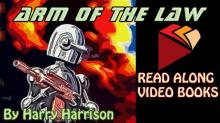 Arm of the Law
Arm of the Law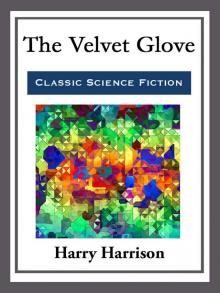 The Velvet Glove
The Velvet Glove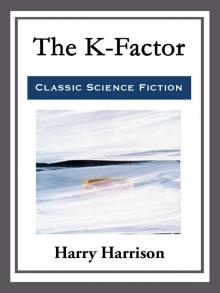 The K-Factor
The K-Factor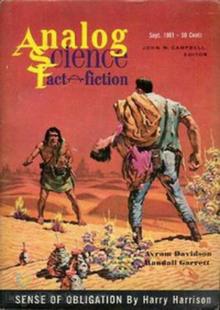 Sense of Obligation
Sense of Obligation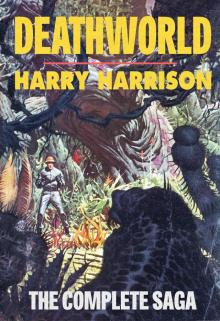 Deathworld: The Complete Saga
Deathworld: The Complete Saga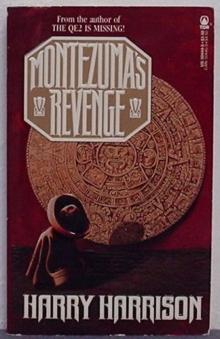 Montezuma's Revenge
Montezuma's Revenge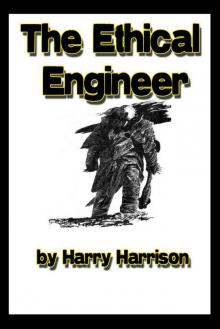 The Ethical Engineer
The Ethical Engineer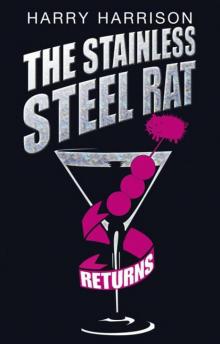 The Stainless Steel Rat Returns
The Stainless Steel Rat Returns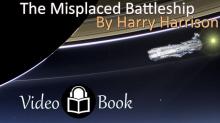 The Misplaced Battleship
The Misplaced Battleship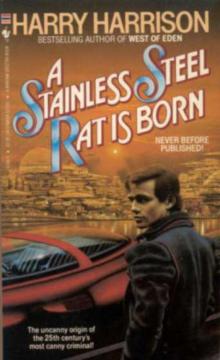 The Stainless Steel Rat is Born
The Stainless Steel Rat is Born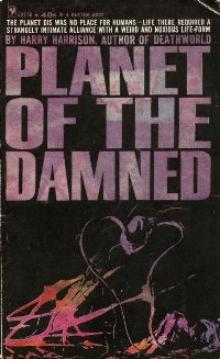 Planet of the Damned bb-1
Planet of the Damned bb-1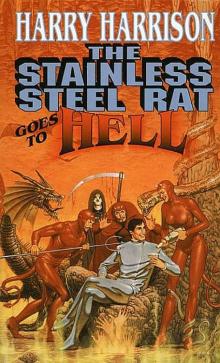 The Stainless Steel Rat Goes to Hell ssr-10
The Stainless Steel Rat Goes to Hell ssr-10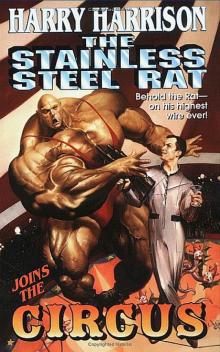 The Stainless Steel Rat Joins the Circus ssr-11
The Stainless Steel Rat Joins the Circus ssr-11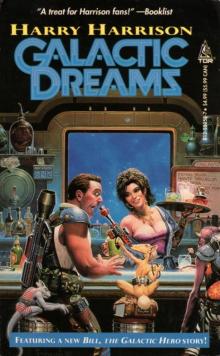 Galactic Dreams
Galactic Dreams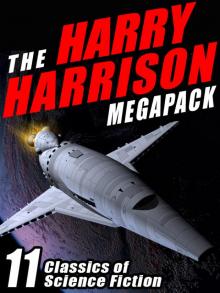 The Harry Harrison Megapack
The Harry Harrison Megapack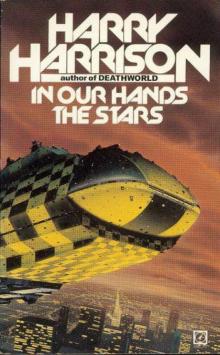 In Our Hands the Stars
In Our Hands the Stars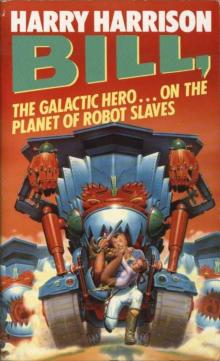 On the Planet of Robot Slaves
On the Planet of Robot Slaves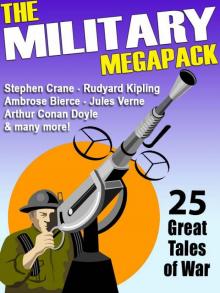 The Military Megapack
The Military Megapack Make Room! Make Room!
Make Room! Make Room!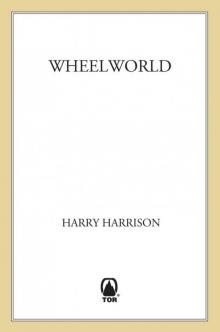 Wheelworld
Wheelworld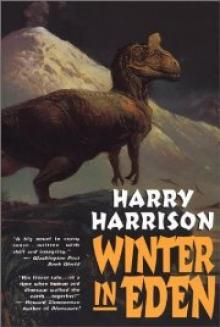 Winter in Eden e-2
Winter in Eden e-2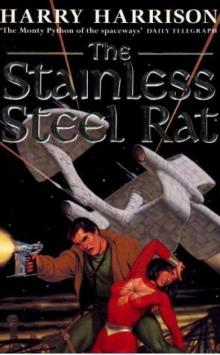 The Stainless Steel Rat
The Stainless Steel Rat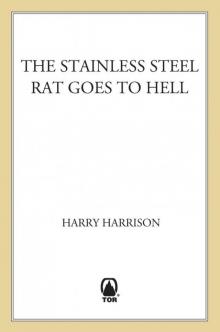 The Stainless Steel Rat Goes to Hell
The Stainless Steel Rat Goes to Hell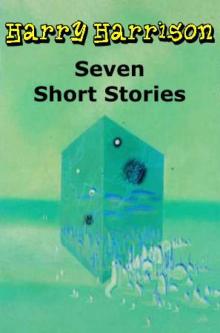 Harry Harrison Short Stoies
Harry Harrison Short Stoies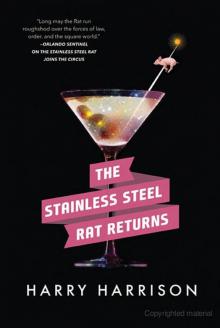 Stainless Steel Rat 11: The Stainless Steel Rat Returns
Stainless Steel Rat 11: The Stainless Steel Rat Returns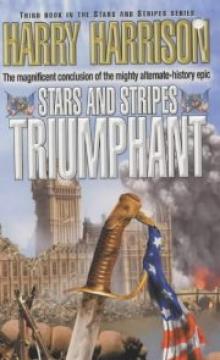 Stars and Stripes Triumphant sas-3
Stars and Stripes Triumphant sas-3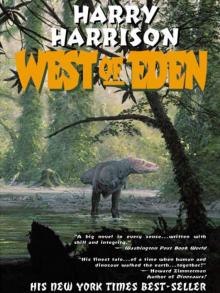 West of Eden
West of Eden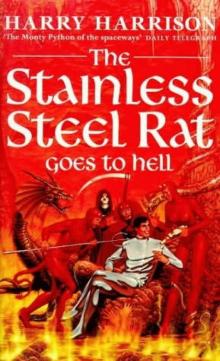 The Stainless Steel Rat Go's To Hell
The Stainless Steel Rat Go's To Hell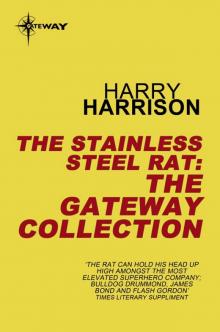 The Stainless Steel Rat eBook Collection
The Stainless Steel Rat eBook Collection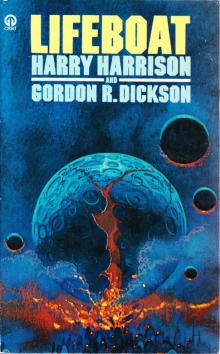 Lifeboat
Lifeboat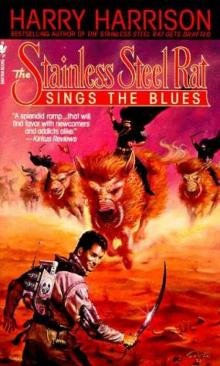 The Stainless Steel Rat Sings the Blues
The Stainless Steel Rat Sings the Blues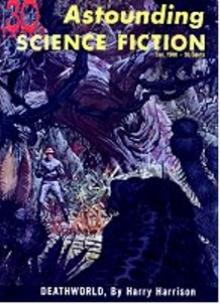 Deathworld tds-1
Deathworld tds-1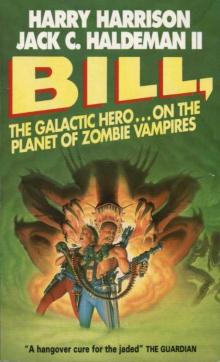 On the Planet of Zombie Vampires
On the Planet of Zombie Vampires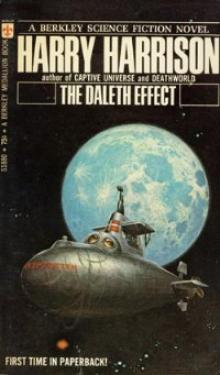 The Daleth Effect
The Daleth Effect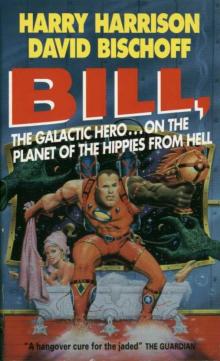 On The Planet Of The Hippies From Hell
On The Planet Of The Hippies From Hell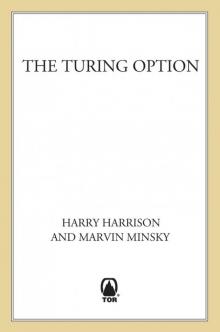 The Turing Option
The Turing Option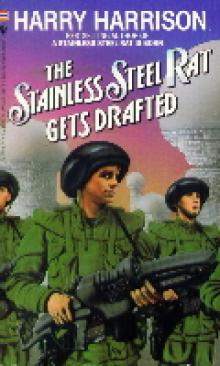 The Stainless Steel Rat Gets Drafted
The Stainless Steel Rat Gets Drafted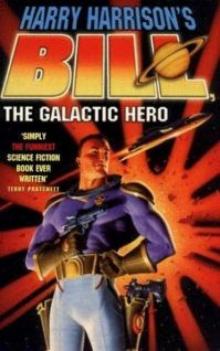 Bill, the Galactic Hero btgh-1
Bill, the Galactic Hero btgh-1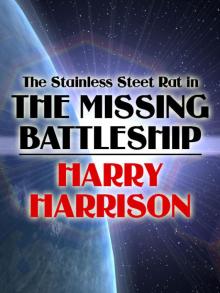 The Stainless Steel Rat in The Missing Battleship
The Stainless Steel Rat in The Missing Battleship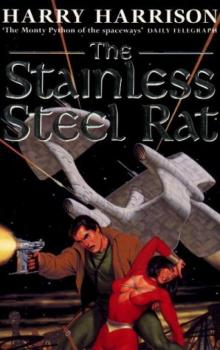 The Stainless Steel Rat ssr-1
The Stainless Steel Rat ssr-1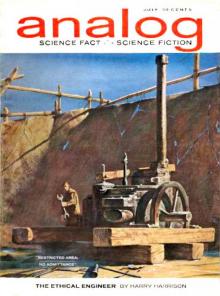 The Ethical Engineer (the deathworld series)
The Ethical Engineer (the deathworld series)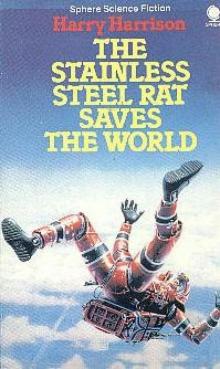 The Stainless Steel Rat Saves the World ssr-3
The Stainless Steel Rat Saves the World ssr-3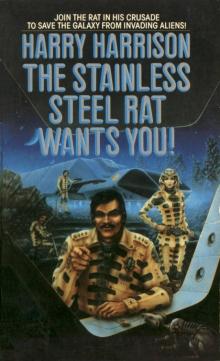 The Stainless Steel Rat Wants You
The Stainless Steel Rat Wants You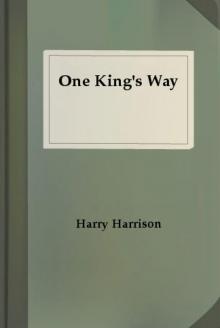 One King's Way thatc-2
One King's Way thatc-2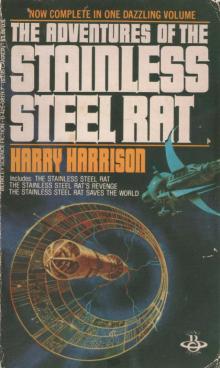 The Stainless Steel Rat Saves The World
The Stainless Steel Rat Saves The World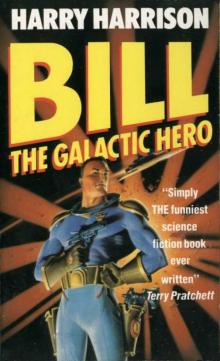 Bill, the Galactic Hero
Bill, the Galactic Hero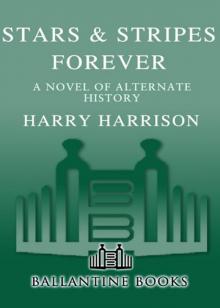 Stars & Stripes Forever
Stars & Stripes Forever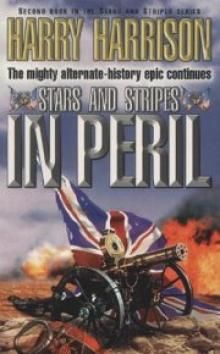 Stars and Stripes In Peril sas-2
Stars and Stripes In Peril sas-2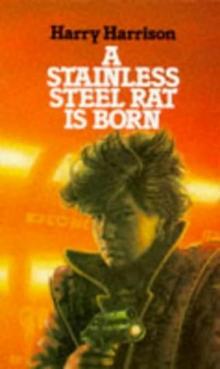 A Stainless Steel Rat Is Born ssr-6
A Stainless Steel Rat Is Born ssr-6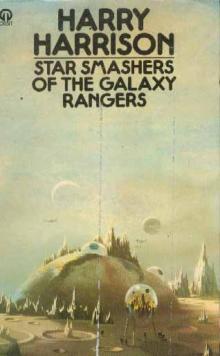 Star Smashers of the Galaxy Rangers
Star Smashers of the Galaxy Rangers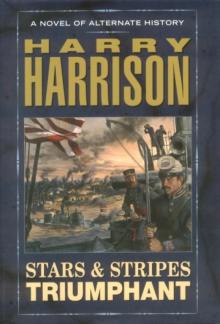 Stars & Stripes Triumphant
Stars & Stripes Triumphant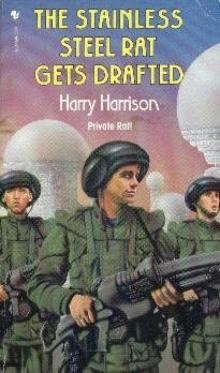 The Stainless Steel Rat Gets Drafted ssr-7
The Stainless Steel Rat Gets Drafted ssr-7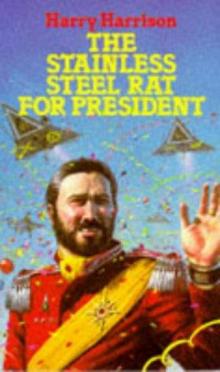 The Stainless Steel Rat for President ssr-5
The Stainless Steel Rat for President ssr-5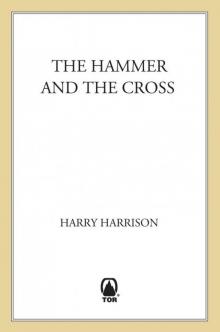 The Hammer & the Cross
The Hammer & the Cross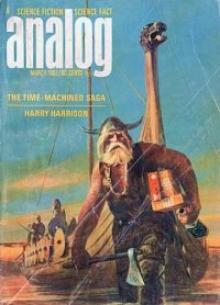 The Technicolor Time Machine
The Technicolor Time Machine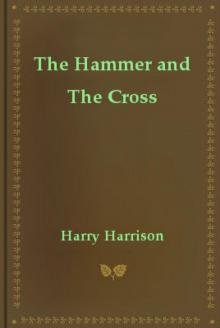 The Hammer and The Cross thatc-1
The Hammer and The Cross thatc-1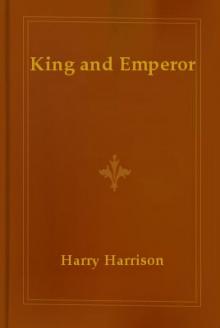 King and Emperor thatc-3
King and Emperor thatc-3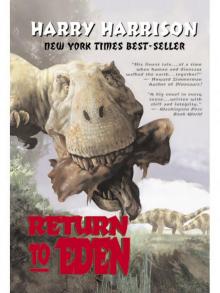 Return to Eden
Return to Eden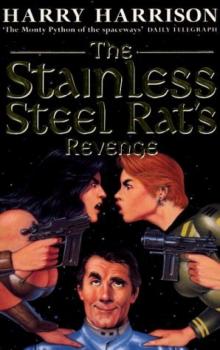 The Stainless Steel Rat’s Revenge ssr-2
The Stainless Steel Rat’s Revenge ssr-2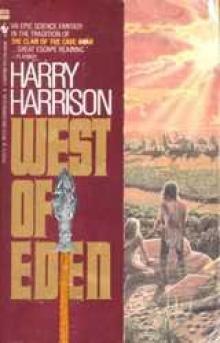 West of Eden e-1
West of Eden e-1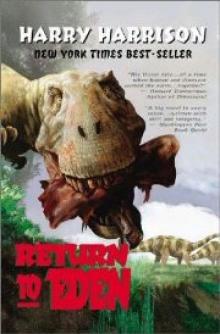 Return to Eden e-3
Return to Eden e-3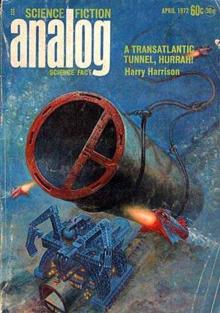 A Transatlantic Tunnel, Hurrah!
A Transatlantic Tunnel, Hurrah!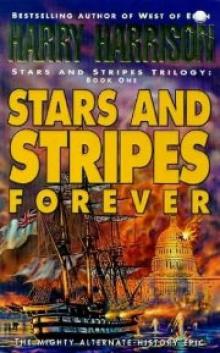 Stars and Stripes Forever sas-1
Stars and Stripes Forever sas-1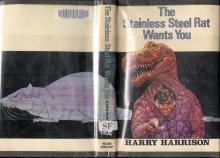 The Stainless Steel Rat Wants You ssr-4
The Stainless Steel Rat Wants You ssr-4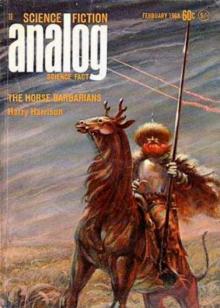 The Horse Barbarians tds-3
The Horse Barbarians tds-3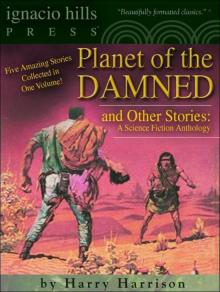 Planet of the Damned and Other Stories: A Science Fiction Anthology (Five Books in One Volume!)
Planet of the Damned and Other Stories: A Science Fiction Anthology (Five Books in One Volume!)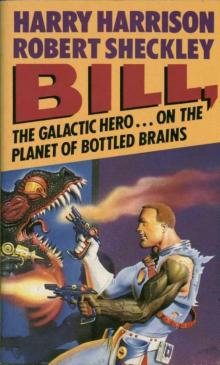 On the Planet of Bottled Brains
On the Planet of Bottled Brains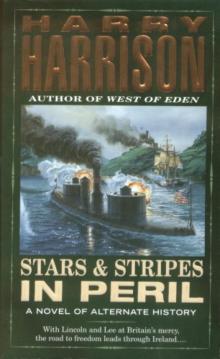 Stars And Stripes In Peril
Stars And Stripes In Peril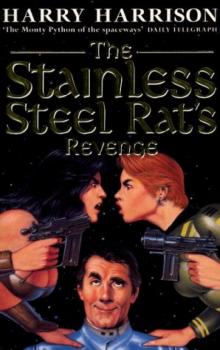 The Stainless Steel Rat's Revenge
The Stainless Steel Rat's Revenge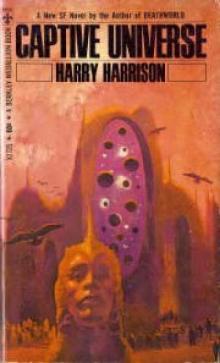 Captive Universe
Captive Universe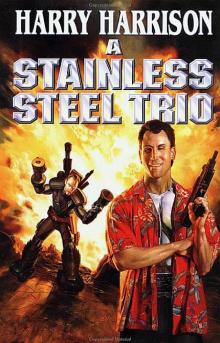 The Stainless Steell Rat Sings the Blues ssr-8
The Stainless Steell Rat Sings the Blues ssr-8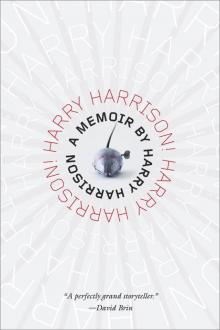 Harry Harrison! Harry Harrison!
Harry Harrison! Harry Harrison!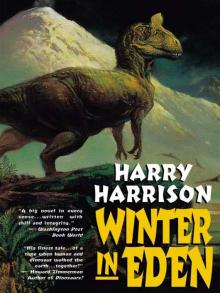 Winter in Eden
Winter in Eden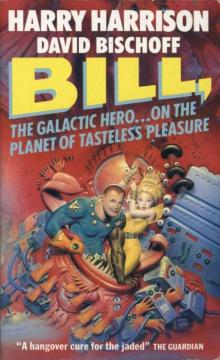 On the Planet of Tasteless Pleasures
On the Planet of Tasteless Pleasures